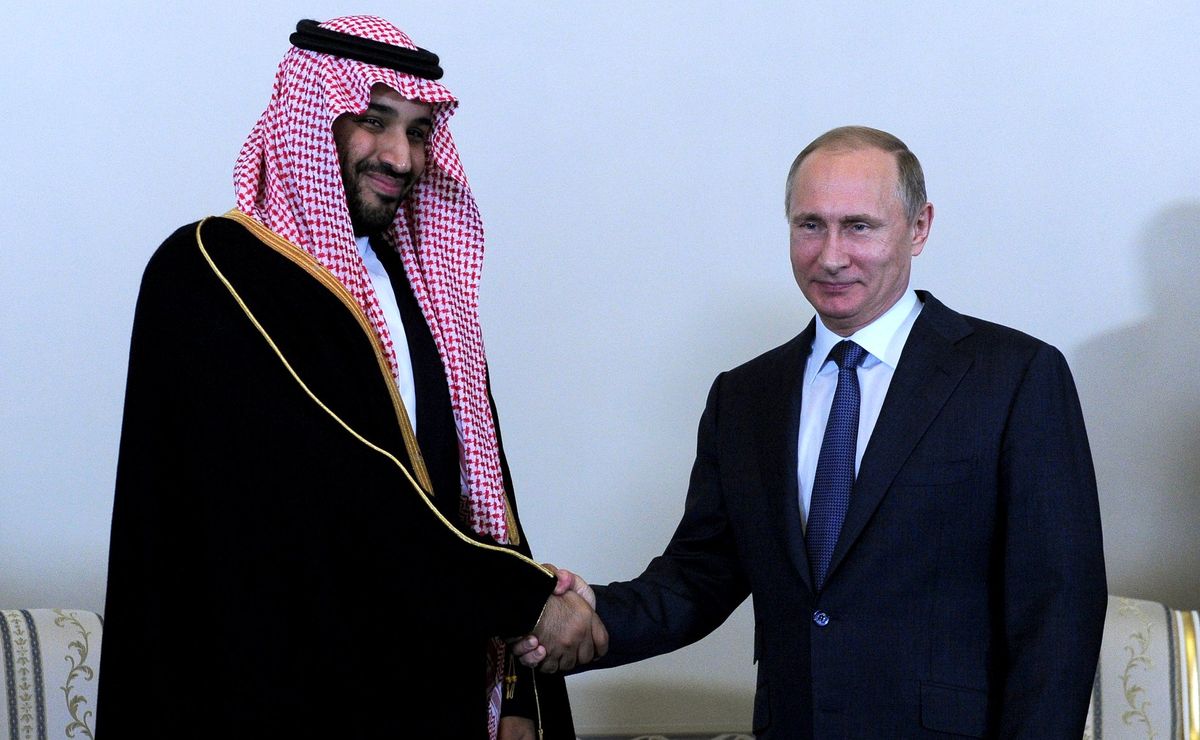Saudi Leader Threatened U.S. Ties Amid Oil Clash and China Rivalry

The Lede: Leaked document reveals Saudi Crown Prince threatened to shake up decades-old U.S.-Saudi relationship and cause economic hardship if the U.S. retaliated against oil cuts
What We Know:
- According to a classified document obtained by the Washington Post as part of the Discord leaks, Saudi Crown Prince Mohammed bin Salman (MBS) claimed “he will not deal with the U.S. administration anymore,” and that he promised “major economic consequences for Washington” if the U.S. retaliated against Saudi Arabia’s decision to cut oil production last fall.
- The sources do not indicate whether MBS made these comments directly to U.S. officials or if the message was intercepted in electronic eavesdropping. A National Security Council spokesperson insisted that they were not aware of such threats by Saudi Arabia.
- The leaks and report coincide with a visit by U.S. Secretary of State Antony Blinken to the Kingdom of Saudi Arabia. Blinken claimed that the U.S. is not asking Saudi Arabia to choose sides and Saudi Foreign Minister Prince Faisal bin Farhan said that his country’s relationships with the U.S. and China do not constitute a ‘zero-sum game.’
The Background: The U.S. and Saudi Arabia have long held a close relationship anchored in their partnership on oil pricing, security guarantees, and the U.S. dollar system. After Saudi Arabia decided to cut oil production amid high energy prices and upcoming U.S. elections, President Joe Biden vowed that there would be consequences for Riyadh. Saudi Arabia and China have recently fostered closer bilateral ties. In early March, Saudi Arabia and Iran agreed to restore diplomatic ties for the first time since 2016 in a deal brokered by China. Saudi Arabia’s state-run oil company Aramco has recently announced a plan to invest in cooperative projects with Chinese petrochemical companies. In response to China’s growing influence, the U.S. has been shifting its focus toward the Gulf region. This includes improving regional diplomatic ties with Israel as well as a transport infrastructure project linking Saudi Arabia and the United Arab Emirates with India.
Likely Outcomes:
- Both the U.S. and Saudi Arabia will likely brush this under the rug as they work to improve bilateral ties. Saudi Arabia has not abandoned its critical relationship with the U.S. in the areas that the two countries cooperate. Meanwhile, the U.S. is in the process of mending the conditions that led to the comments made by MBS while insisting on its continued relevance in the face of China’s growing influence in the region.
- Future ties between Riyadh with Washington and Beijing will likely see-saw to a more balanced approach as both will be seen as partners. The rivaling superpowers may increasingly propose cooperative endeavors as the Gulf states open into an area of competitive influence. However, Washington’s eagerness may be getting ahead of itself as the Middle East has been shaping up differently than the U.S. vision for the region.
Quotables:
“China is the world’s second-largest economy. China is our largest trading partner. So naturally, there is a lot of interaction … and that cooperation is likely to grow. But we still have a robust security partnership with the U.S. That security partnership is refreshed on an almost daily basis.” - Faisal bin Farhan, Foreign Minister of Saudi Arabia
“In general, such documents often represent only one snapshot of a moment in time and cannot possibly offer the full picture. The United States continues to collaborate with Saudi Arabia, an important partner in the region, to advance our mutual interests and a common vision for a more secure, stable, and prosperous region, interconnected with the world.” – anonymous spokesperson for the U.S. National Security Council
“We’ve also been very clear we’re not asking anyone to choose between the United States and China. We’re simply trying to demonstrate the benefits of our partnership and the affirmative agenda that we bring.” – Antony Blinken, U.S. Secretary of State
“Riyadh is returning to a more traditional foreign policy that avoids conflict and favors accommodation with rivals. The [Biden] administration has a big agenda for Blinken to work with the Saudis: Keeping the cease-fire in Yemen, getting one in Sudan, fighting ISIS, and above all keeping oil prices from rising out of control.” – Bruce Riedel, Middle East expert at the Brookings Institution
Good Reads:
Saudi crown prince threatened ‘major’ economic pain on U.S. amid oil feud (Washington Post)
